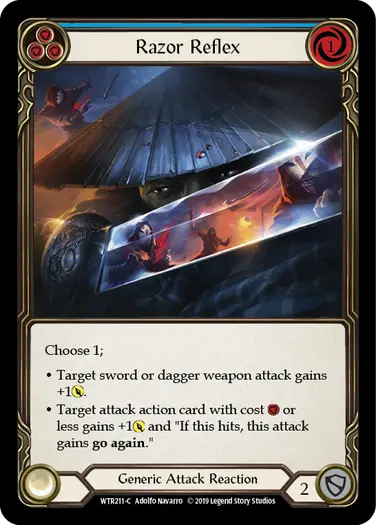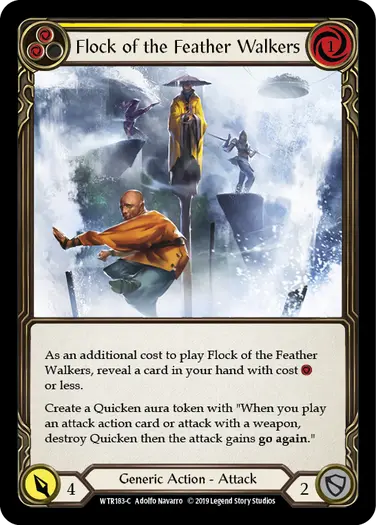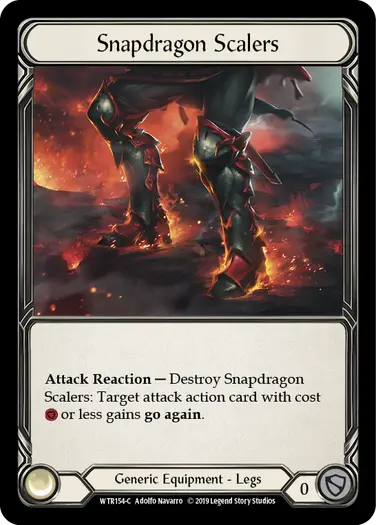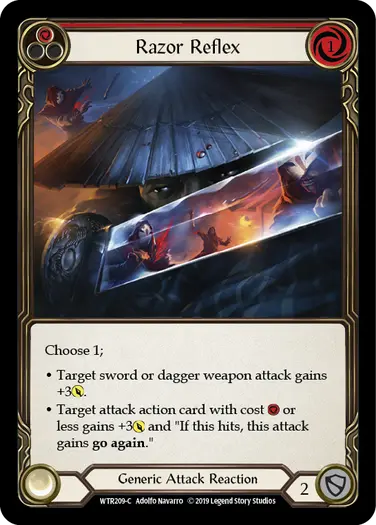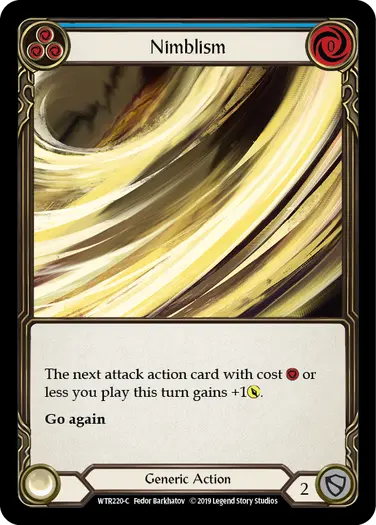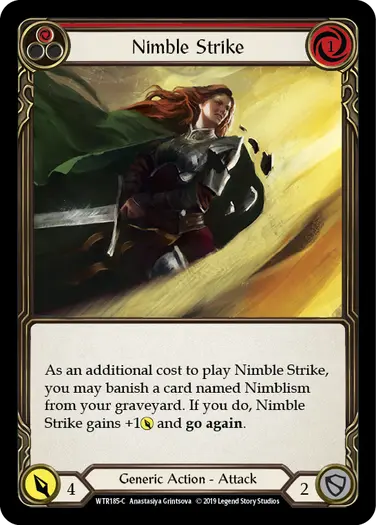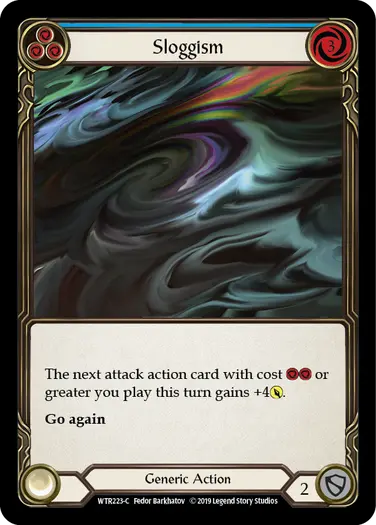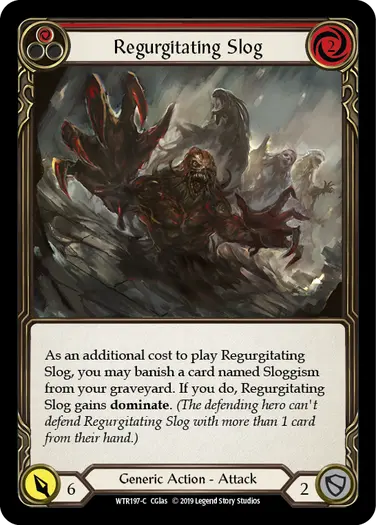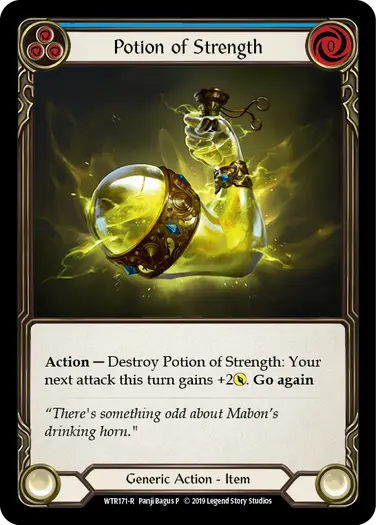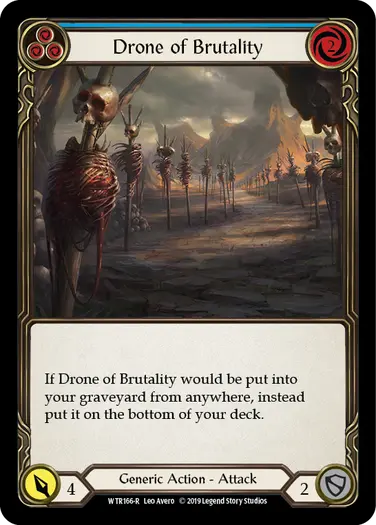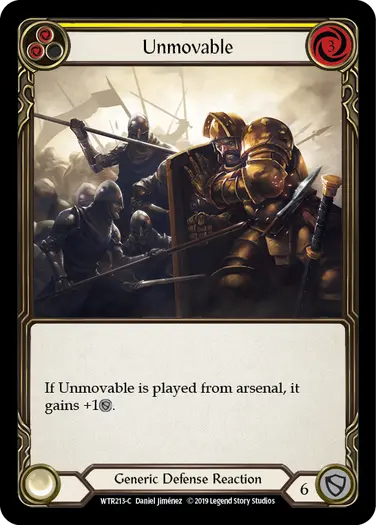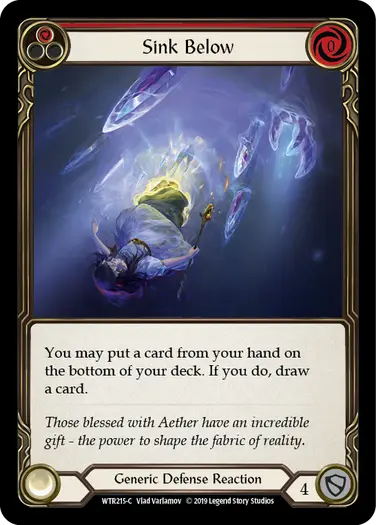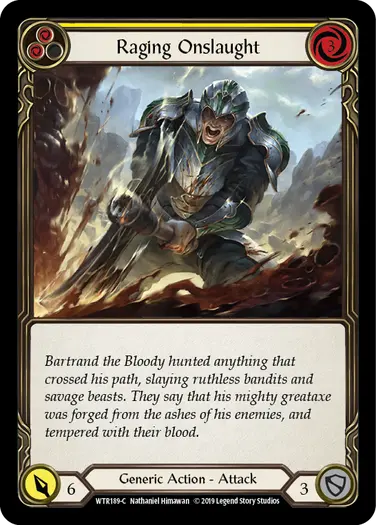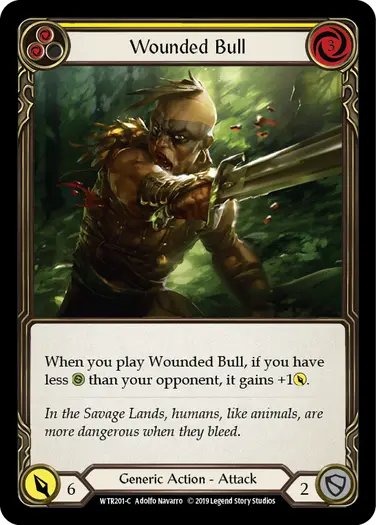In every draft of any trading card game, there is always a pivotal point where you must make a decision to how your draft deck will ultimately shape up. Sometimes you decide in the middle of the draft, or maybe from your first pick; either way, little decisions like this can impact your entire draft.
Unlike other games, Flesh and Blood puts a lot of emphasis on the first pack, and this can ultimately decide how your deck can end up – but it’s really not as simple as picking a class and sticking with it. Despite the seemingly linear direction, due to the nature of having to play only a single class (thus not allowing you to play other class-specific cards), the game’s drafting goes much deeper than that. Generic cards not only play a role in being cards that can be picked up by anyone, but choosing generics can also become a great strategy in itself.
Reading Signals
No one wants to fight their neighbour for the same cards. Everyone wants to be the only one in their given class, and get all the power cards to themselves. In an ideal world, a draft would consist equally of two of each class, but in reality that happens less often than you might think. By prioritising generics, you are prolonging the decision to decide which of the four classes you want to draft, and therefore getting a better gauge on how the four classes are divided amongst the table. For example, you may start to begin to see powerful Ninja cards towards the end of the pack and therefore make the assumption that there are not many Ninja drafters at the table, so Ninja would be a good class to go into. Likewise, you might see a lack of Brute cards coming your way, making you assume there could be as many as three Brute drafters at the table, and would want to avoid contesting that class.
Even though you are drafting generics, that doesn’t mean that you can’t draft strong cards and powerful synergies in doing so. Generic cards often have synergy that work best in certain class shells – so although it can be played in any deck, it would go better in certain classes. An example of this is Razor Reflex which, although it could be played in a Brute or Guardian deck, the card really shines in a Ninja deck (as you can capitalize the go again mechanic) and in Warrior (who benefits heavily from another card that can size up your weapon).
An ideal draft would start with your first few picks being generic cards. After a few picks, try to sway in a direction of a generic strategy, as this would help make your deck more synergistic and powerful. Take note of what classes are missing in each pack, and what classes are likely to be heavily drafted from your right. It is equally as important to take note of what you are passing to your left. Towards the end of the pack one, don’t be afraid to pick any powerful class cards, but keep in mind that you don’t necessarily have to commit into this class.
In pack two, your goal is to settle into the class you think is best for you. This decision is made through looking at what generic cards you have drafted, and what you believe your two neighbours are choosing. In an ideal world, you will be passed some powerful class cards that other drafters could not play, due to committing into their class early, and that will push you in the right direction.
Possible Generic Strategies
Go Wide Plan
- Generic cards that have go again or can grant go again.
- Flock of the Feather Walkers
- Snapdragon Scalers
- Razor Reflex
- Nimblism + Nimble Strike
One Big Attack
- Sloggism + Regurgitating Slog
- Potion of Strength
Defensive
- Drone of Brutality
- Unmovable
- Sink Below
Becoming the Signal
There is a misconception that the best way to get good at drafting is to read signals, establish the open archetype and go into it. However, there is also the strategy of becoming the signal yourself, and forcing the other players to work their draft around you.
The most obvious upside to this is that you get to pick powerful class cards straight away, meaning that your first few picks are often very powerful. However, what happens if the class you chose gets cut and you no longer get any cards of your class?
This is not usually as big of a problem as you might think. Let's use an example where we are forcing Brute. We pick every single Brute card in pack 1 (including generics that are very good for Brute). The person directly on our left is unlikely to be able to go Brute, as the best Brute card is missing in each pack, and furthermore the next 1-3 people on your left will just see a lack of Brute cards in general. Therefore in pack 2, it is likely that you will get a few packs where not a single Brute card would be taken, as there are just no Brute drafters on your left.
On the other hand, what if the players directly to your left or right open a Brute rare, pick it, and never look back? While this may happen sometimes, the chance is not high. It is still possible to play the class by figuring out which generics actually fall into your respective class the best, and picking those up when there is no class card in your pack that you want. An example of some generic cards that go perfectly into brute but less so into other classes are:
Why Being the Lesser Drafted Strategy is Better
Both these strategies have their pros and cons, but neither of them are strictly superior.
If there are too many people forcing a class and never switching, it creates inequality in the classes to drafters ratio and causes players to fight for the same class cards, while the players who decided to stay open and jump into the lesser drafted class are rewarded.
For example: A generic drafter is waiting until late in pack one, before seeing that nobody at the table is drafting Ninja. In pack 2 and 3, as the only Ninja Drafter (or close to the only) he is able to pick up powerful Ninja cards later on, while other drafters are fighting each other for the other class cards.
However, if there are too many players taking their time before deciding what class to go, the players who choose their class early will not be contested at all and have a more powerful deck due to the fact they were picking powerful class cards to begin with, and didn’t start drafting class cards late in the draft.
For example: A generic drafter who takes his time and eventually goes into Brute will have a much less powerful deck than the drafter who first picked a Brute card, and started picking powerful cards from the start. By waiting to read signals and figuring out what class he wants to go, he is forgoing picking powerful class cards in his first X picks.
Let’s say that in a draft pod, there are two types of drafters. Ones that pick powerful cards in a specific class early on, and are forcing for that class; and the ones that pick generic classes and stay open.
If there are six players staying open, while two players just picked their class and went for it, the two remaining players will hugely benefit. They handpicked their class from the very beginning, and were able to sculpt the perfect deck out of 45 picks, while the players staying open may clash even further, as when they finally choose a class, they could end up clashing with other players who choose the same class late.
On the opposite end of the spectrum, if there are two players staying open and six forcing, then the ones staying open can maneuver themselves into a class that consists of one or even zero other drafters. Then in the later packs, be rewarded as all the best cards fall right into their card pool.
People who read these signals correctly and realise when they should pull the trigger and jump into a class, and not do it too early or too late, will be rewarded with a wealth of cards that other players cannot play. In a Flesh and Blood draft, it’s not just about drafting a class, it’s about setting yourselves up for the best possible class in your draft seat.
For more resources on sealed decks and drafting, check out our rules and policies page here.
